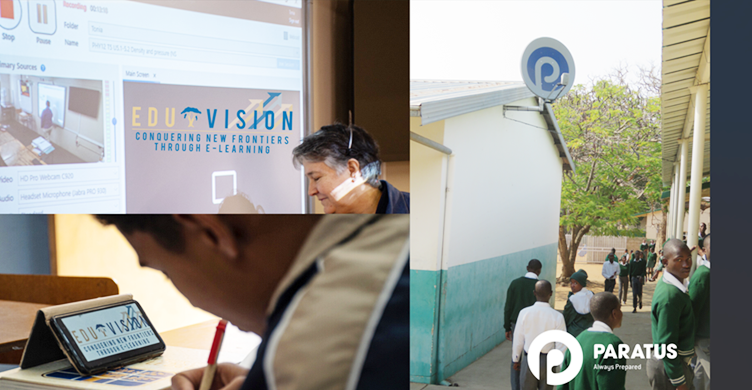Over 12 000 students in remote areas across Namibia now have reliable internet access.
This is facilitated through Eduvision, an innovative e-learning initiative that provides dependable internet connectivity to underserved Namibian schools, thereby facilitating digital education.
This is in collaboration with Paratus Namibia.
Executive chairman of Paratus Group Barney Harmse said the alliance came to fruition when the company was introduced to key stakeholders through Eduvision to explore how technology could bridge the education gap in underserved communities.
From the first digital board installation at Edugate Academy and Tsumkwe Secondary School, Eduvision has expanded to numerous schools, enabling interactive learning and real-time knowledge sharing.
Today, more than 12 000 students benefit from free access to quality online education, helping to close the digital divide in rural areas.
With Paratus Namibia’s robust and reliable internet infrastructure, further supported by GEO satellite technology, students in remote areas – from Katima Mulilo in the northeast to Tses in the south, Khorixas in the west as well as Gam in the east – can access quality education and expert instruction through nine regions.
The programme has made a tangible difference, with both students and educators experiencing improved connectivity and enhanced learning opportunities.
Harmse said a dedicated technical support team from his organisation plays a crucial role in the initiative’s success, ensuring schools receive timely assistance whenever technical challenges arise.
In remote areas where help is often scarce, this level of support is invaluable for keeping digital classrooms running smoothly.
Beyond connectivity, the Eduvision team also provides food, clothing and essential supplies to schools and communities in critical need.
This support has fostered strong connections with students, parents and educators, reinforcing the importance of education in creating opportunities for the future.
Harmse stated that access to education is one of the most powerful tools for change.
Through Eduvision, they are helping to deliver digital learning access to remote Namibian schools where it is needed most.
“Witnessing this initiative grow and positively impact so many students is genuinely rewarding. It’s not just about providing technology. It’s about creating opportunities for every Namibian child to learn, grow and reach their potential, regardless of where they live,” he said.
Harmse shared that recent milestones include the successful connection of Niitembu Primary School in the Oshana region, via Paratus VSAT, to the Eduvision network.
Shipena Secondary School in the Soweto area of Katutura was connected through microwave connectivity to the internet.
This allowed access to an artificial intelligence platform for the learners, thereby further enhancing access to digital education in underserved communities.
“We are fully committed to this initiative. The impact is far-reaching because access to better education helps empower the next generation of Namibian leaders and pioneers,” he said.
-pmukokobi@nepc.com.na



